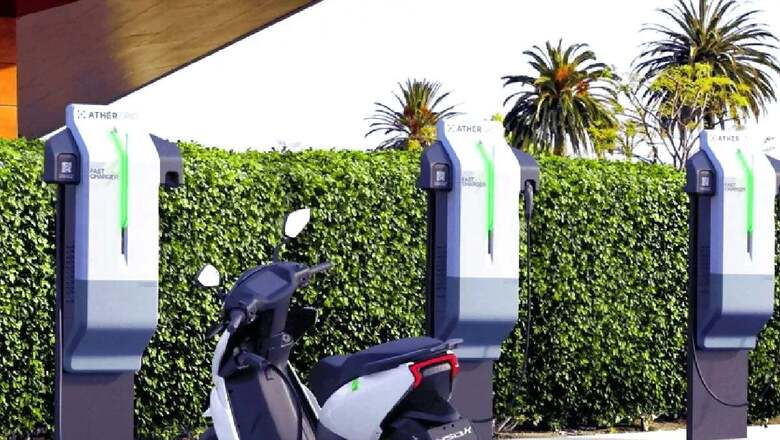
views
In a significant move, Ather Grid charging points, which had been generously offering free charging to all users so far, are about to put a price tag on their services.
The popular electric scooter manufacturer, Ather, has announced that starting from August 1st, users will be charged at the rate of Rs. 1 per minute, along with GST.
Since 2018, Ather had been promoting electric vehicle adoption by keeping its Ather Grid network accessible to everyone without any cost. The company believed that public charging played a pivotal role in encouraging EV usage. However, as the user base grew, the free charging facility led to overcrowding at the charging points, especially when riders plugged in their vehicles for extended periods.
Ather now aims to address this issue by introducing a paid charging system. The Ather Grid is primarily designed to offer quick top-ups for vehicles on the go. By implementing a paid model, the company hopes to ensure that owners only charge their scooters for the required duration, freeing up chargers for those genuinely in need.
Despite this change, there will be a few exceptions to the new pricing structure. Owners of Ather 450 (Gen 1 and Gen 1.5) models will continue to enjoy free charging access at Ather Grid points. Additionally, those who purchased their scooters during Ather Electric December in 2022 will still benefit from complimentary charging for the duration of the offer.
Charging Your EV At The Grid VS Charging At Home: Pros & Cons
With the new Rs. 1/minute + GST fee, getting around 80 percent charge might cost you approximately Rs. 100 or more. In comparison, charging your scooter at home would only cost around Rs. 20. Hence, opting for the Ather Grid will likely make more sense when you’re running out of range and need a quick recharge.
While Ather justifies the introduction of paid charging for better service and accessibility, some concerns arise regarding the increasing prices of electric scooters, considering the reduced subsidies. Experts wonder if this move could present a challenge for EV companies trying to sell their products and potentially slow down the overall adoption of electric vehicles across the country.




















Comments
0 comment